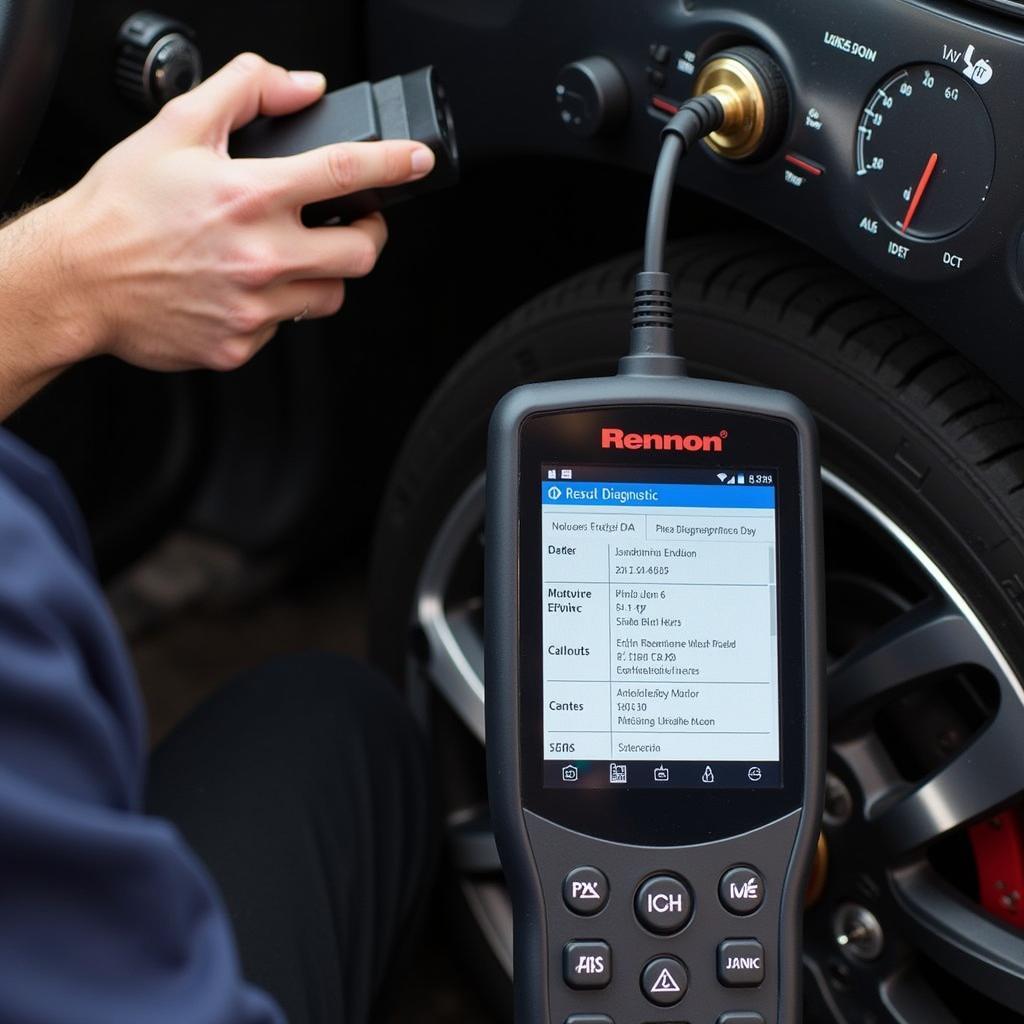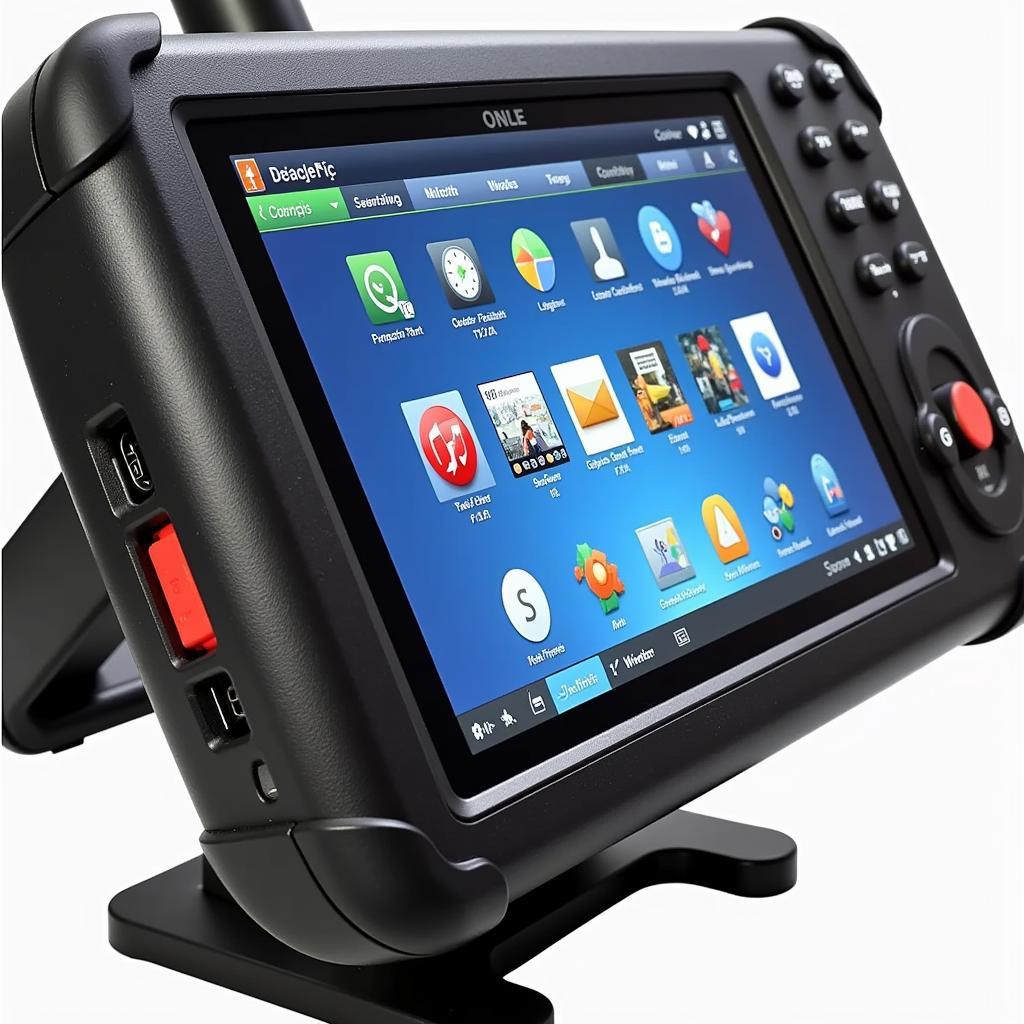Choosing the right diagnostic scan tool is like having a multilingual mechanic by your side, able to translate your car’s cryptic codes into understandable information. With countless options flooding the market, finding the perfect fit for your needs can feel overwhelming. This comprehensive guide dives deep into the world of diagnostic scan tools, empowering you to make an informed decision for all your car maintenance needs.
 Best Diagnostic Scan Tool For All Cars
Best Diagnostic Scan Tool For All Cars
Understanding the Importance of Diagnostic Scan Tools
Before delving into the specifics, let’s address the “why.” Why is a diagnostic scan tool considered an indispensable asset for car owners and professionals alike? Imagine this: your car starts acting up – engine sputtering, a disconcerting check engine light glowing ominously on your dashboard. A diagnostic scan tool, in essence, serves as a bridge of communication between you and your car’s computer system. It retrieves valuable diagnostic trouble codes (DTCs) that pinpoint the root cause of your automotive woes. This empowers you to:
- Identify Issues Early: Detect minor problems before they escalate into major (and often expensive) repairs.
- Save Money: Avoid unnecessary trips to the mechanic for simple diagnoses.
- Gain Control: Understand your car’s health and make informed decisions about its maintenance.
- Enhance Resale Value: A well-maintained car, backed by diagnostic records, commands a higher resale value.
Types of Diagnostic Scan Tools
Navigating the world of diagnostic scan tools can feel like entering a labyrinth of technical jargon. Fear not, let’s break down the most common types:
1. Code Readers: The entry-level players, code readers are budget-friendly and perfect for DIY enthusiasts. They primarily retrieve and display basic DTCs, giving you a general idea of the issue.
2. OBD-II Scanners: A step up from code readers, OBD-II scanners offer more detailed information beyond basic codes. They can access live data streams from your car’s sensors, allowing you to monitor parameters like engine RPM, coolant temperature, and oxygen sensor readings.
3. Professional-Grade Scan Tools: As the name suggests, these are the heavy hitters used by professional mechanics and serious car enthusiasts. They boast advanced functionalities like bi-directional control (allowing you to command specific vehicle components), module coding, and access to manufacturer-specific codes.
Key Features to Consider
When choosing a diagnostic scan tool for all cars, consider these key features:
- Vehicle Compatibility: Ensure the tool supports your car’s make, model, and year.
- Code Definitions: Look for tools that provide clear and concise explanations of DTCs, saving you from deciphering cryptic codes.
- Live Data Streaming: The ability to monitor live sensor data provides invaluable insights into your car’s performance in real-time.
- Bi-Directional Control: For advanced users, this feature allows for component testing and advanced troubleshooting.
- Software Updates: Regular software updates ensure compatibility with newer car models and access to the latest features.
- User Interface: A user-friendly interface with intuitive navigation and clear data presentation enhances the overall experience.
 Key Features of a Diagnostic Scan Tool
Key Features of a Diagnostic Scan Tool
Finding the Right Tool for Your Needs
The “best” diagnostic scan tool is subjective, depending largely on your individual needs and technical proficiency.
- Casual Car Owner: If you’re primarily interested in reading and clearing basic engine codes, a budget-friendly code reader or an OBD-II scanner is a suitable choice.
- DIY Enthusiast: For those who enjoy delving deeper into car maintenance, an OBD-II scanner with live data streaming and some advanced features offers a good balance between price and functionality.
- Professional Mechanic: Professional-grade scan tools with comprehensive functionalities like bi-directional control and module coding are essential for in-depth diagnostics and repairs.
“Investing in the right diagnostic scan tool is an investment in your car’s longevity,” says automotive expert John Smith, a seasoned mechanic with over 20 years of experience. “It empowers you with the knowledge to address minor issues before they snowball into major problems, potentially saving you thousands of dollars in the long run.”
The Future of Car Diagnostics
The automotive landscape is rapidly evolving, with technology playing an increasingly pivotal role. Similarly, the realm of diagnostic scan tools is undergoing transformative changes. Emerging trends include:
- Wireless Connectivity: Bluetooth and Wi-Fi enabled tools offer seamless connectivity, allowing you to access data and updates wirelessly.
- Cloud-Based Platforms: Cloud integration enables data storage, analysis, and sharing, opening up new avenues for remote diagnostics and predictive maintenance.
- Augmented Reality (AR): AR-powered tools overlay digital information onto the real world, providing interactive and visually-guided diagnostic experiences.
Conclusion
A car diagnostic test is no longer a luxury but a necessity in today’s tech-driven world. Armed with the right diagnostic scan tool, you can unlock a deeper understanding of your car’s health, troubleshoot problems efficiently, and make informed decisions about its maintenance.
Remember, a well-maintained car not only provides a smooth and enjoyable driving experience but also ensures your safety on the road. Embrace the power of technology and take control of your car’s well-being with a diagnostic scan tool that aligns perfectly with your needs.
FAQs
1. Can I use any diagnostic scan tool for my car?
No, compatibility is crucial. Ensure the tool supports your car’s make, model, and year.
2. What is the difference between a code reader and an OBD-II scanner?
Code readers primarily retrieve and display basic DTCs. OBD-II scanners offer more features, including live data streaming and access to additional vehicle parameters.
3. How often should I use a diagnostic scan tool?
It’s good practice to scan your car periodically, especially if you notice any unusual performance issues or warning lights.
4. Can a diagnostic scan tool fix car problems?
No, it’s a diagnostic tool, not a repair tool. It helps identify issues, but you’ll need to address the underlying mechanical or electrical problems separately.
5. Where can I find reliable car diagnostic app iphone recommendations?
DiagFixPro provides comprehensive reviews and recommendations for various car diagnostic tools, including phone apps, to help you make an informed decision.
For further assistance and personalized recommendations, feel free to reach out to our team of car diagnostic experts. You can contact us via WhatsApp: +1(641)206-8880, Email: [email protected]. We’re available 24/7 to help you navigate the world of car diagnostics with confidence.

Leave a Reply